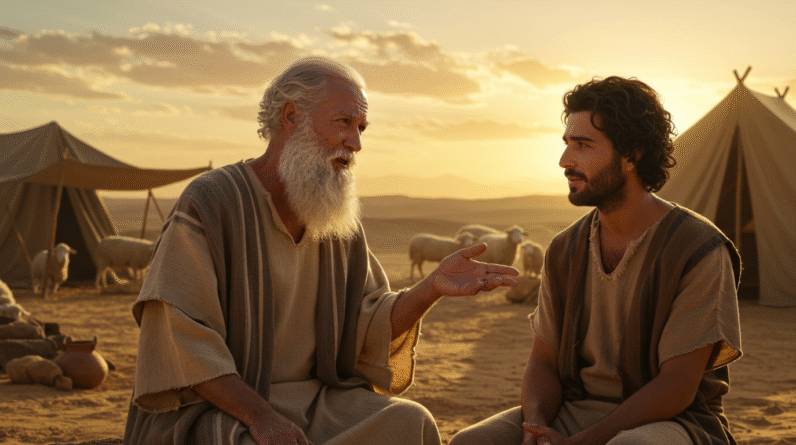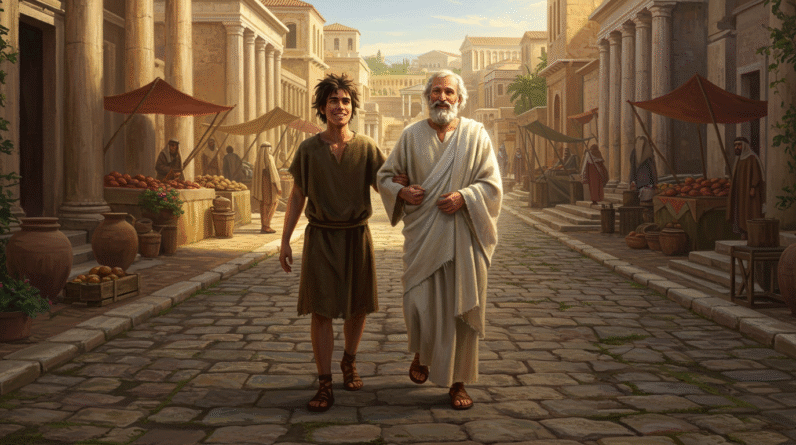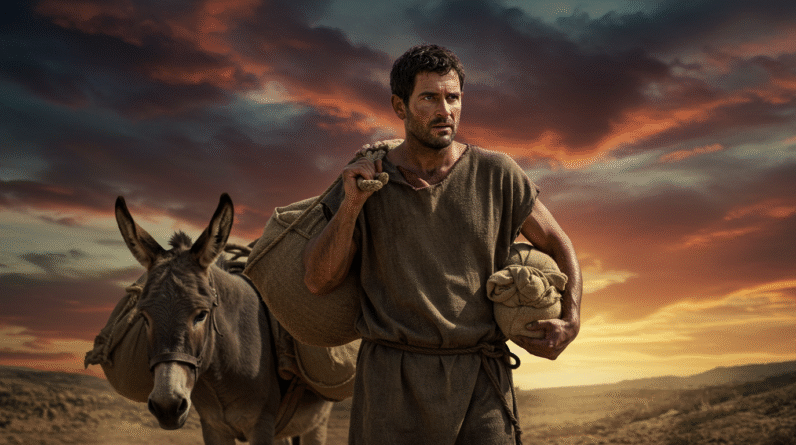Explore Theophilus’s pivotal role in Luke and Acts. Dive into the subtleties of faith and truth as his quiet influence shapes early Christian teachings.
Theophilus: Understanding His Role in Luke and Acts
The name Theophilus might not echo David or Moses, yet his presence in the Bible holds significant importance. Mentioned explicitly at the very beginning of both the Gospel of Luke and the Acts of the Apostles, Theophilus is recognized as an honorable figure to whom these detailed accounts are addressed. His role, though not elaborated upon through massive narratives or deeds, serves as a gateway for the teachings and missives to reach broader audiences, both ancient and modern.
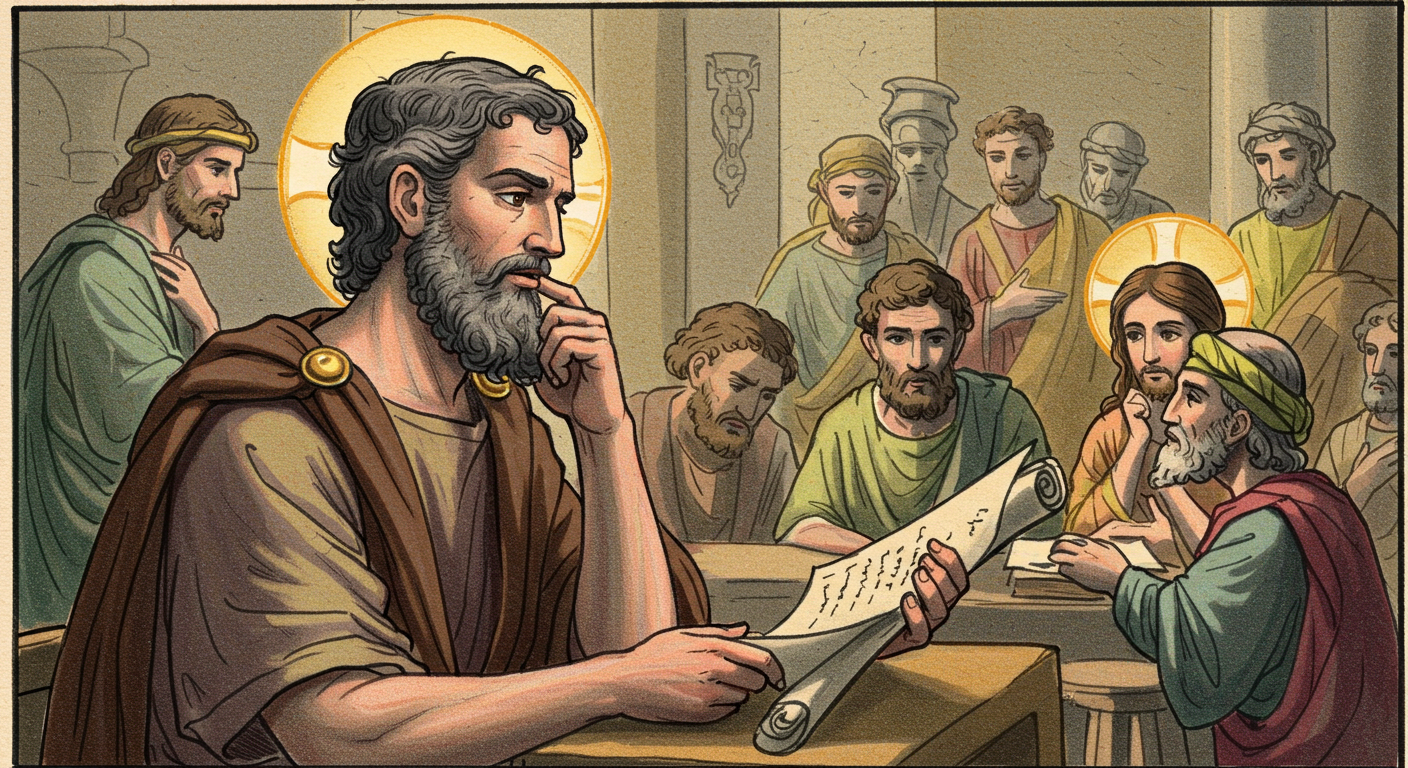
Introduction
Have you ever considered who Theophilus might be as you read the opening lines of Luke or Acts? Luke 1:3 and Acts 1:1 provide us with a glimpse of a figure standing at the crossroads of Christian narrative delivery. Thought to be a patron of Luke’s writings or simply a lover of God (as his name suggests), Theophilus symbolizes the yearning for understanding and truth in a world burgeoning with spiritual change and challenges. Through his narrated contributions, the path of understanding the life and resurrection of Jesus Christ, and the early church’s journey, is etched into the hearts of believers.
Their Story in the Bible
Though Theophilus’s biblical story isn’t a narrative filled with escapades or dramatic events, his role as a recipient of two fundamental texts—Luke and Acts—is undeniably central to the dissemination of Christian teachings. Luke’s Gospel meticulously lays out the life of Christ, moving from the nativity to the resurrection. This document served not only as a spiritual guide but also as a historical chronicle to ground the faith in tangible events. Addressing Theophilus, in the beginning, implies that this account was designed for someone with the discerning power to legitimize or support its reach to the masses.
In the Book of Acts, Theophilus once again receives a direct mention. Acts picks up right where Luke left off: the Ascension of Christ and the ensuing actions of the Apostles. Explaining how the initial church set its roots amongst challenging societies, this second book offers a window into the vigor and trials the disciples faced as they spread the gospel. Essentially, highlighting Theophilus at the onset of both books underlines his critical role as a conduit of the gospel’s authenticity and its propagation throughout early Christian communities.
Lessons from Their Life
Even a figure whose actions remain unchronicled can teach us volumes. From Theophilus, we learn the elegance of support and advocacy for emerging causes, the importance of seeking the truth with humility, and the quiet power of enabling great works quietly behind the scenes. In a modern tainted world where sponsorship and patronage often come under scrutiny or carry strings attached, Theophilus presents us with a notion of genuine service to something greater than oneself.
Recognizing that the documents sent to Theophilus were for careful inspection and, perhaps, endorsement highlights trust and integrity. These attributes are critical; they remind us that supporting a cause without seeking glory is a virtue worth emulating today.
Connection to Today’s World
Imagine how Theophilus’s support and interest in early Christian documentation manifest in today’s world. His story speaks directly to modern society, grappling with the dissemination of truth amid information overload. Like Theophilus, individuals and communities are tasked with discerning the true essence of teachings, whether religious, ethical, or societal.
Additionally, in a time where information can be both a boon and a bane, his story urges us to anchor ourselves in sources rooted in integrity. Theophilus teaches us that our roles—no matter how quiet or understated—can significantly affect broader missions. Our support or endorsement can expand understanding and foster belief systems with generation-lasting impacts, emphasizing the importance of being a discerning, responsible presence in our evolving digital and spiritual landscapes.
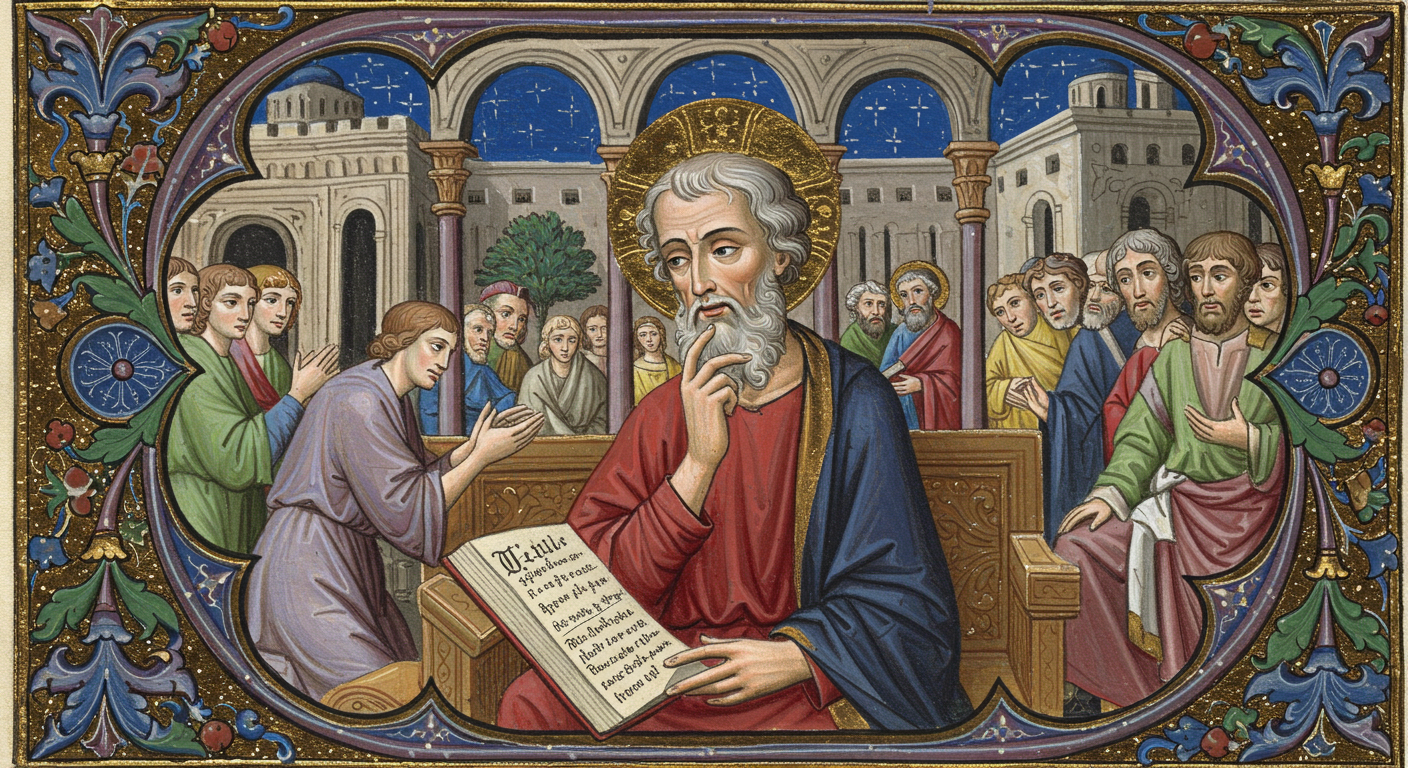
Key Bible Verse
“In my former book, Theophilus, I wrote about all that Jesus began to do and to teach until the day he was taken up to heaven.” (Acts 1:1-2). These opening lines from Acts capture Theophilus’s engaged role in the Christian chronicles. As the custodian of Luke’s former book, Theophilus is a symbol of readership and legacy. His engagement is a precursor to gospel transmission, teaching us about the sacred trust nestled between author and reader.
Historical/Cultural Context
Amidst the cultural whirlwind of Greco-Roman society, where various religious and philosophical doctrines vied for dominance, Theophilus, thought to be a person of high social standing, represented the potential unity of different worlds—the Jewish roots of Christianity blended with the Hellenistic culture. His name, meaning “friend of God” or “lover of God,” suggests not just a personal faith voyage but possibly a broader invitation for both Jews and Gentiles alike to unite under a shared spiritual understanding, transcending cultural boundaries.
Thought-Provoking Question
What role do you play in supporting and spreading truth within your community? How can you ensure that your influence is as sincere and profound as that of Theophilus?
Conclusion
As our journey through the character of Theophilus draws to a close, it invites you to reflect upon your own ability to quietly, yet profoundly, contribute to the world’s betterment. As you ponder these spiritual intersections, remember to appreciate the understated roles that shape our spiritual narratives.


